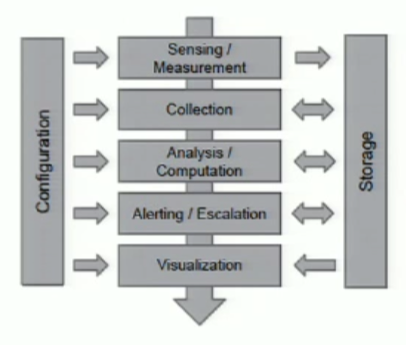-
15. Re: Scoping, what's a metric or not?
theute Oct 1, 2014 4:25 AM (in response to john.sanda)Someone need to start a collaborative Google doc so that we can comment and improve all together
We need to find out:
- what type of metrics to support
- what type of aggegration/compaction/downsampling relevant to each type (and if we need to allow different methods for a same type depending on use case)
- Examples of arithmetic functions to apply to metrics (Average, Min, Max, APDEX...)
- I am particularly interested in how this affects the implementation, for instance Apdex is a formula based just on response times timeseries + 2 parameters (Number of samples and acceptable response time). There are at least few things to agree on for the implementation if that needs to be stored.
- Is the value stored as part of the same timeseries (and you have the apdex value for each datapoint) or is it part of a seperate (but related) metric. What happens if an arithmetic function takes input from 2 timeseries (and do we have that need) ?
- What should happen to the already calculated values when a user wants to change one of the "static" input (Number of samples or acceptable response time)
- How to compact those values
- I am particularly interested in how this affects the implementation, for instance Apdex is a formula based just on response times timeseries + 2 parameters (Number of samples and acceptable response time). There are at least few things to agree on for the implementation if that needs to be stored.
-
16. Re: Scoping, what's a metric or not?
john.sanda Oct 1, 2014 10:04 AM (in response to theute)I can start putting together a document. I have started a doc for what we do currently in RHQ. It can be found at https://docs.jboss.org/author/display/RHQ/Metrics+Data+Aggregation. It is still a work in progress. I do think we want support aggregation functions that take input from multiple metrics/time series. Consider a cluster of EAP server where we are monitoring request throughput, latency, etc.. It would be nice to generate metrics for the cluster as a whole making it easier to compare parts to whole. Then we could more easily see the load of a single EAP server relative to the cluster. We could also generate baselines based on the cluster metrics. Then as new nodes are added to the cluster, there is no need to generate a new baseline for the node.
-
17. Re: Scoping, what's a metric or not?
john.sanda Oct 1, 2014 11:37 PM (in response to john.sanda)I have create a Google doc, https://docs.google.com/document/d/1OxsJmW-r3H7AwE6ZKfX7HnhqaXGw_ZObHKmmlpSngPQ/edit?usp=sharing, to capture requirements for things that have come up in this thread. The link provided should give comment access. Please ping/email me directly if you want access to edit the document.
-
18. Re: Scoping, what's a metric or not?
mithomps Oct 5, 2014 4:43 PM (in response to john.sanda)I found this Usenix video informative as it covers Modeling Metric Systems and evaluates many of the current monitoring systems with respect to this model.
A Working Theory of Monitoring: http://www.usenix.org/conference/lisa13/working-theory-monitoring (~40 min)
Here is a diagram of the model:
